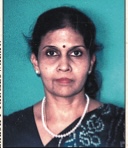By Lakshmy Parameswaran
As a family violence counselor, I hear about tragedies and devastation as part of my job. These are personal stories of sorrow and heartbreak that often render families helpless and sometimes homeless. I have seen case of many women and children physically, sexually and emotionally assaulted in their own homes by their loved ones. I know of too many people struggling to recover, even years after their victimization. The tragedy of September 11 victimized our entire nation and caused me to consider my work with family abuse in the light of its traumatic aftermath.
The September 11 tragedy was perhaps the first time in a long time the citizens of this country have truly felt the impact on themselves of violence against someone else. Like others, I was confused and outraged. Like others, I was moved to tears. I loathe the perpetrators of this unspeakable atrocity. Yet, I look at their faces flashing on the television screen and wonder about their childhood. What did they witness in their own homes? What messages did they receive from the adults around them?
It would be easy for us to blame religion and scripture, for they offer a graceful alternative to taking personal responsibility in a situation like this. The terrorists themselves were not the only ones at fault. Their “enabling” families and community were, too. No world religion, including Islam, condones violence.
It is only natural to feel defeated by the enormity of this tragedy and to think that we cannot do anything about it. Thousands are dead while thousands of the living are left to deal with sudden and cruel loss. However, I do believe that if we voice our objection to those everyday acts of violence, the so-called domestic disputesÑthe subtle and not-so-subtle acts of physical, sexual and psychological abuse inflicted upon millions of women and children right in their own homesÑwe may actually be able to make a difference, to reduce abuse.
We have all heard the saying, “Charity begins at home.” The families I work with show me that charity is not the only thing that begins at home. Love, hatred, anger and violence do, too. This is what makes me believe that we are not helpless after all. If violence can take shape within the home, isn’t it then sensible to believe that the prevention of violence could also begin there? What is there to stop us from making our own homes violence free?
“It is difficult for me to share my feelings with the outside world because I’d be called crazy,” said Rita (not her real name), a survivor of domestic violence, remarking about the September 11 tragedy. “I actually saw on TV the second plane approaching the tower. People were screaming. Finally, I saw with my own eyes this plane hitting the tower. Unfortunately, I was in my bedroom where my husband made a brutal attack on my life two years ago. The psychological impact of watching another act of violence from the same spot where violence was inflicted on me was so horrible that I started screaming. I actually visualized my husband in the cockpit of that plane, flying it into the building. I think family violence is an act of terrorism inflicted by one member of a family on other members. Unfortunately, most of the victims of this sort of terrorism do not die. They smolder in the wreckage with no hope for rescue.”
The tragedy of September 11 has left irreparable damage. We feel the torment and agony of its victims. We have learned to live with the kind of fear millions of survivors of family violence already knew. How we utilize this stark revelation will say a lot about us as a nation of peace-loving individuals and families.
Lakshmy Parameswaran, MA, LPC, is a counselor and training specialist on family, date violence and sexual assault. She is also president-elect of Daya Inc., (713-914-1333) a voluntary, non-profit organization serving South Asian women and children in Houston, Texas.info@dayahouston.org
